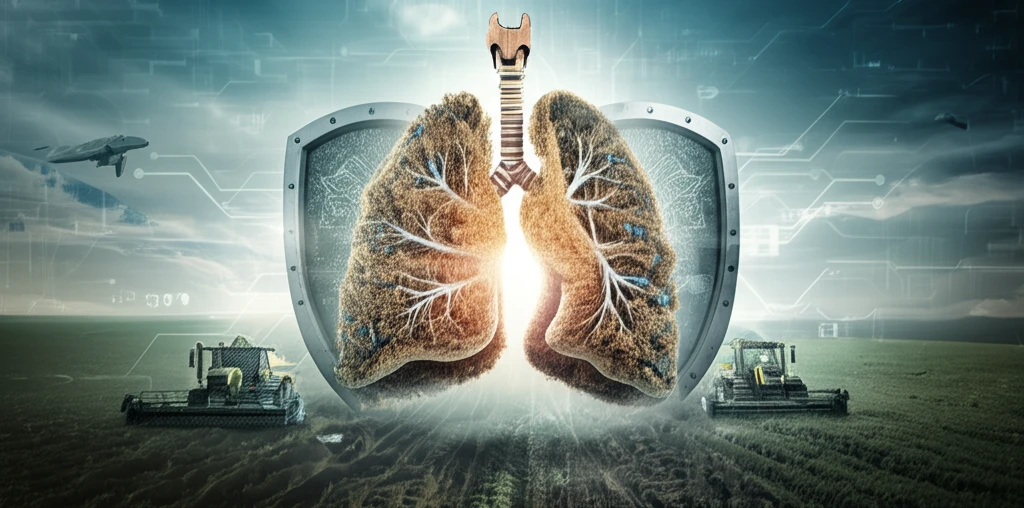
Can Hog Farming Actually Reduce Your Risk of Lung Cancer? The Surprising Science
"Explore the unexpected link between industrial hog farming and altered immune responses, potentially offering new insights into lung cancer prevention."
The prevailing narrative often paints agricultural environments, particularly those involving industrial livestock farming, as sources of health hazards. However, emerging research suggests a far more complex interplay between these environments and human health. A recent study published in Occupational and Environmental Medicine delves into the intriguing possibility that industrial hog farming might be associated with altered immunological markers that could potentially reduce the risk of lung cancer.
This isn't to say hog farming is inherently healthy, but it introduces a fascinating wrinkle into our understanding of environmental exposures and their effects on the human body. The study, conducted by researchers from the National Cancer Institute and the University of Iowa, among others, explores how exposure to endotoxins—components of bacteria prevalent in hog farming environments—might trigger immune responses that offer some protection against lung cancer.
Given the emphasis on wellness and preventative health, this research provides some interesting food for thought. While not advocating for a career change into hog farming, understanding the mechanisms behind these observations could lead to new strategies for lung cancer prevention.
The Surprising Link: Hog Farming and Immune Responses

The study involved a detailed analysis of serum immune marker levels in 61 active hog farmers compared to 61 control participants. All participants were male, non-smoking residents of Iowa, enrolled in the Agricultural Health Study (AHS). Researchers used a multiplexed bead-based assay to measure various immune markers, carefully controlling for factors like age, phlebotomy date, and cattle raising, to isolate the specific effects of hog farming.
- Macrophage inflammatory protein-3 alpha (MIP-3A/CCL20): Increased by 111%.
- Basic fibroblast growth factor (FGF-2): Increased by 93%.
- Soluble interleukin-4 receptor: Increased by 12%.
What This Means for You (and the Future of Lung Cancer Research)
This research offers a compelling glimpse into the multifaceted relationship between environmental exposures, the immune system, and cancer risk. While it's far too early to recommend any specific actions based on these findings, it underscores the importance of continued investigation into the potential anti-carcinogenic effects of endotoxins and other exposures common in agricultural settings. Further research with detailed bioaerosol exposure assessments is needed. By identifying and understanding these mechanisms, scientists may pave the way for novel preventative strategies and more effective treatments for lung cancer.
